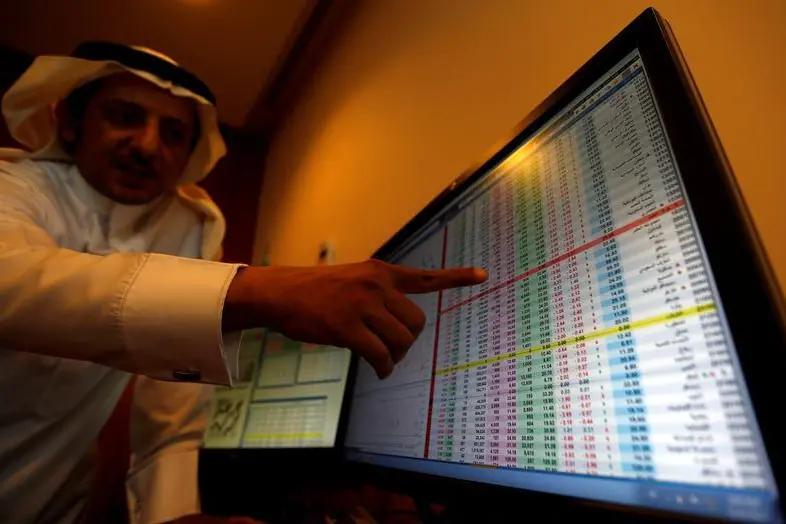PHOTO
DUBAI - Middle East funds have become more wary but not outright bearish toward Saudi Arabia's stock market because of concern over the fallout from the killing of Jamal Khashoggi, a monthly Reuters poll showed on Wednesday.
Foreign investors, including those from other Gulf states, were net sellers of Saudi equities for most of this month, partly because of fear that Khashoggi's death could damage Saudi ties with the West and conceivably lead to economic sanctions.
Gulf investors sold a net $147 million of Saudi stocks last week, after net sales of $98 million in the previous week and $28 million in the week before that, according to exchange data.
But the poll of 13 leading Middle Eastern fund managers, conducted over the past week, suggested most funds do not intend to continue selling.
Twenty-three percent expect to raise their allocations to Saudi equities in the next three months and the same proportion to reduce them. In last month's poll, 38 percent anticipated increasing Saudi allocations and none foresaw cutting them.
Many managers are still looking ahead to estimated inflows into Saudi Arabia of about $15 billion of "passive" funds next year when Riyadh's market joins emerging market indexes. Because this money is closely linked to the indexes, it is unlikely to be affected by geopolitics.
A big investment conference in Riyadh last week was boycotted by more than two dozen top Western executives and officials, but plenty of lower-level executives were there and business contacts continued.
Also, stronger Saudi state finances, partly due to a rebound of oil prices, are expected to help economic growth accelerate next year.
"The Middle East and North Africa region’s economic outlook is improving, with the International Monetary Fund raising the growth outlook as higher oil prices start to trickle through to increased fiscal spending," analysts at Arqaam Capital said in a report this week.
Arqaam said the third-quarter earnings reporting season in the Gulf so far had broadly confirmed its expectations that Saudi, United Arab Emirates and Kuwaiti banks would enjoy double-digit earnings per share growth.
The latest poll also found 38 percent of fund managers expected to increase UAE equity allocations and one to reduce them, almost unchanged from the last poll.
Fund managers are slightly positive on balance towards stock markets in Qatar and Kuwait. Qatar's stock index has jumped 19 percent so far this year to 18-month highs, partly on the back of inflows of foreign investment, said Talal Samhouri, head of asset management at Amwal in Doha.
"We expect Qatar to enjoy this inflow for the next couple of months, but then we believe that Kuwait will start attracting foreign investors and regional attention," he added.
Kuwait is in the process of joining FTSE Russell's emerging market index and MSCI will decide next year whether to add Kuwait to its own version of that index. (Reporting by Andrew Torchia Editing by Andrew Heavens)
© Reuters News 2018





















